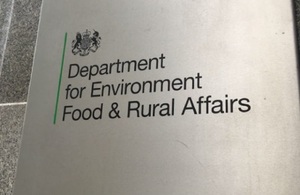The Home Secretary has introduced the National Security Bill, which brings together vital new measures to protect the British public, modernise counter espionage laws and address the evolving threat to our national security.
This Bill will keep our country safe by making the UK an even harder target for those states who seek to conduct hostile acts against the UK.
It will provide new and updated tools for our law enforcement and intelligence agencies to tackle modern threats, which range from cyber-attacks and spying to interference in our economy and democracy.
This Bill will, for the first time, make it an offence to be an undeclared foreign spy in the UK and introduce a new foreign interference offence to disrupt illegitimate influence activity done for, or on behalf of, a foreign state.
A new sabotage offence will be introduced to provide greater scope to respond to new tactics and technology, such as the use of drones and cyber attacks. It will address the serious threat from state-backed attacks on sites, data, and infrastructure critical to the UK’s safety or interests.
This Bill will also criminalise acts which are committed in preparation for state threats offences, meaning that the perpetrators can be disrupted before serious damage is done and it will allow the courts to hand down significantly longer sentences for foreign state backed crimes.
Home Secretary, Priti Patel said:
The British public should be in no doubt of my determination to keep them and our country safe from those who would seek to do us harm.
The threat of hostile activity from states targeting our democracy, economy and the values we hold dear is real and ever-evolving – which is why the modernising measures included in the National Security Bill are so essential.
These tougher laws and more powerful tools for our world class police and intelligence agencies, will be critical to help those on the front line deal with the threats we are constantly facing.
MI5 Director General, Ken McCallum said:
The UK is in a contest with states who are trying to undermine our national security and democratic institutions.
Laws designed to deal with wartime espionage have not kept pace with the threats MI5 is now tackling. State actors are stealing not only national security secrets, but our cutting-edge science, research and technology. They are attempting to interfere covertly with our democracy, economy and society. We see coercion and, at the extreme, direct threats to life.
The laws of the past continue to serve us against ‘traditional’ espionage. It must be right that Parliament looks at modernising the powers the State has to protect us all from the full range of today’s threats.
This National Security Bill will replace existing espionage laws which were primarily designed to counter the threat from spies during the First World War. It will create a modern set of offences to apprehend and enable prosecution of people not captured by existing legislation, and increase existing maximum sentences. This will protect the UK from those who conduct espionage, disclose sensitive information and trade secrets to foreign states and otherwise assist foreign intelligence services.
While the core of the Bill focuses on countering hostile activity from foreign states, it will also include reforms to restrict the access of convicted terrorists to civil legal aid. Reforms to civil claims will prevent public funds from being given to those who could use it to support terror.
This Bill will introduce a Foreign Influence Registration Scheme, requiring individuals to register certain arrangements with foreign governments, to help combat damaging or hostile influence being exerted by foreign states in the UK. These laws will apply to threats from any state which would do the UK or its citizens harm, recognising that the threat we face today is growing, diversifying and evolving.
The National Security Bill, formerly known as the Counter State Threats Bill, will be introduced to Parliament today, with its further stages as parliamentary time allows.
Proposed measures included in the Bill will:
- reform existing espionage laws
- introduce new offences to tackle:
- state-backed sabotage
- foreign interference
- the theft of trade secrets
- assisting a foreign intelligence service (e.g. by being a covert foreign spy)
- create a foreign influence registration scheme, (FIRS). This will bring us in line with our allies in Australia and the United States by creating a scheme requiring individuals to register certain arrangements with foreign governments
- enhance police powers to support the investigation of state threats activity to enable the police to obtain evidence of espionage activities
- reform existing prohibited places provisions to protect the UK’s most sensitive sites
- provide powers to allow state threats to be tackled at an early stage and for other offences that are committed where there is a state link to be sentenced accordingly
- introduce a new suite of State Threat Prevention and Investigation Measures (STPIMs) to use as a tool of last resort to manage those who pose a threat but who cannot be prosecuted
- also include measures to restrict the ability of convicted terrorists to receive civil legal aid and prevent the exploitation of our civil damage systems by convicted terrorists
